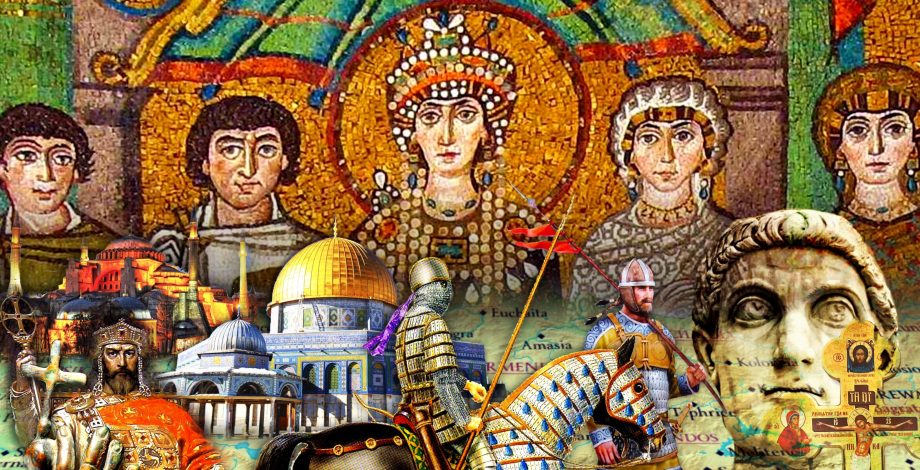The civil war continues with Bardas Sclerus and Bardas Phokas locking horns. Although the Imperial side emerge victorious, the price is years of tension with their new Domestic.
Period: 977-983
Download: Bardas Sclerus
RSS Feed: The History of Byzantium
If you want to send in feedback to the podcast:
– Either comment on this post.
– Or on the facebook page.
– Leave a review on Itunes.
– Follow me on Twitter.



At about 29:20, the phrase “Meanwhile Lekapinos’s ability to form working relationships had kept him in power for half a century” is repeated.
Thank you
Is this why there are two episode 151s in my feed, with one 10 seconds shorter than the other?
Yes
Question: I don’t speak any Greek, old or new, but since Basileus is Vasilevs, shouldn’t Bardas in fact be Vardas and Basil Vasil, as in slavic and other languages in the region, where the name comes straight from Greek (I believe) and sounds something like Vasilyi (Russian) or Vasile (Romanian) ?
Yes I think that’s right. Back in the crisis period before the siege of 717-18 there was an Emperor who I called Vardan the Armenian. I followed one particular translation at the time but could easily have called him Bardaanes (I think). In general I follow the more famous anglicised names when someone is well known. So Basil, Constantine, John etc rather than how it should sound in Greek. You may already know this but at the beginning of ep 116 I gave my reasons for pronunciations 🙂
Yes, I do remember you taking about your reasons, and listening again to that segment I find them very reasonable. Don’t you think though that perhaps simply mentioning the original pronunciation, accents and all, just for reference, at least for Greek names, would add to authenticity along the lines of sprinkling insights into the Roman life of the time, which you have done along the course of the podcast ? Just a suggestion, I for one would be keen to find out what it sounded like at the time -just like I would like to see how Constantinople looked at the time or how people were dressed — simply the audio dimension of things.
I’m reluctant to add too much more alternate pronunciation but I will do my best. I did in passing refer to Nicephorus and John by how those names sounded in Greek, so if it comes up organically I will do.
I taught there in 2006 and I found a hotel near the Hagia Sophia that had an underground church beneath it but off hand I cannot recall the name of Hotel but the owner was half Greek like myself and half Turkish. My late Papou was born in Constantinople 1895. I explored all over the city and of course the historic district was my favorite. I visited the Hagia Sophia eight times spending three hours inside each time.